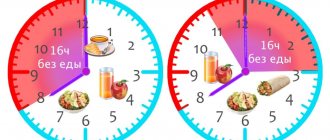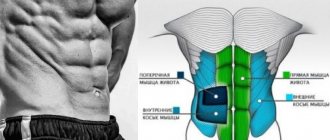Description of the disease
Compulsive overeating disorder (BED) is a dangerous pathological condition. The patient, due to the stress he has experienced, is unable to control his appetite. The essence and nature of a compulsive disease is well explained by its second name - psychogenic overeating, since the causes of the development of an eating disorder should be sought not in the physiological, but in the mental sphere.
Any stressful situation can provoke a painful state: the loss of a loved one, the loss of keys, a conversation with the authorities in a raised voice, and other unpleasant situations.
Attacks of psychogenic overeating may recur from time to time. As with other eating disorders, the patient considers himself healthy. The exception is excess weight, which accompanies psychogenic overeating. Uncontrolled appetite has clear differences from other food-related diseases:
- if with anorexia the patient ceases to adequately perceive his own body, then with compulsive overeating the problem of excess weight becomes obvious and is the root cause of contacting a psychologist, psychotherapist, and other doctors;
- a patient with compulsive overeating disorder usually does not seek to get rid of food by inducing artificial vomiting, while the symptoms of bulimia are characterized by obligatory cleansing procedures, which the patient is unable to refuse.
Causes
A normal physiological need is to eat exactly when a feeling of hunger arises. If food consumption is reduced to nervous chewing and no attention is paid to the amount of food eaten, it is worth thinking about the fact that bulimia or uncontrolled overeating may be the cause of increased weight and the appearance of extra centimeters in volume.
Physiological factors can provoke compulsive overeating - dysfunction of the hypothalamus and genetic predisposition. Genetic scientists have identified three genes, the presence of which in the genetic code leads to obesity and can provoke the development of an eating disorder.
How overeating affects our lives
Despite the fact that overeating does not have such obvious consequences as with alcoholism or smoking, it is dangerous to underestimate the health impact of such a diet.
The main consequence of overeating is obesity. According to Rosstat
Some people manage to maintain a slim figure even with constant overeating and think that this does not affect their body in any way. But that's not true. Their fat deposits accumulate around their internal organs. This is visceral fat. An excess of such fat impedes the blood supply to organs, which causes pathologies.
To determine whether a person is overweight, you can use the body mass index (BMI). It reflects the ratio of body weight to height of a person:
BMI is used for a rough estimate, as it does not take into account the characteristics of a person’s physique. On the recommendation of the World Health Organization, an interpretation of this indicator was developed:
| Body mass index | Correspondence between a person's mass and his height |
| 16 or less | Severe underweight |
| 16-18,5 | Underweight |
| 18,5- 24,99 | Norm |
| 25-30 | Excess body weight (pre-obesity) |
| 30-35 | Obesity |
| 35-40 | Severe obesity |
| 40 or more | Very severe obesity |
Obesity, in turn, increases the risk of developing a number of diseases and unpleasant symptoms that reduce quality of life:
1. The risk of developing serious diseases of the cardiovascular system increases.
Overeating and obesity are one of the main causes of cardiovascular diseases. Excess nutrients lead to the appearance of fat deposits. This in turn can cause fatty heart disease. In addition, blood volume increases and the load on blood vessels increases. According to statistics, this can lead to the development of coronary heart disease in 20% of those suffering from obesity, and hypertension occurs in 75%
2. Disruption of the normal functioning of the pancreas.
It is a consequence of excessive consumption of carbohydrates and fats. Disruption of the pancreas can lead to dangerous diseases such as pancreatitis and diabetes. According to statistics, type 2 diabetes mellitus with obesity develops in 60% of cases
3. Skin problems.
If you like to eat foods that contain a large amount of fat, then this may result in acne on your face. The fact is that such food stimulates the sebaceous glands, which begin to actively secrete subcutaneous fat.
4. Adverse effect on potency.
Obesity has recently been shown to increase the risk of erectile dysfunction in men. Thus, 79% of men suffering from erectile pathology are at the stages of pre-obesity and obesity. That is, their body mass index (BMI) is 25 kg/m2 or higher, and the norm is 18.5-24.9 kg/m2.
The higher your weight, the higher your likelihood of developing erectile dysfunction: [1]
- at the pre-obesity stage (BMI 25-30 kg/m2) increases the risk of the disease by 1.5 times;
- at the stage of obesity (BMI more than 30 kg/m2) - the risk increases by 3 times.
In addition, more than 50% of diabetic men suffer from erectile dysfunction
Psychological aspect of the problem of psychogenic overeating
Physiological and genetic reasons can be a consequence of the development of a food-related illness, but the psyche plays a central role.
Leading psychotherapists, in describing clinical cases of compulsive overeating, note that the onset of the disease is preceded by negative life events. Social and physiological factors can cause such stress.
To understand whether you have a problem and whether you need the help of a psychotherapist, you should honestly answer a number of questions.
- Have you started to notice that your diet is difficult to control?
- Are all your thoughts connected with food?
- do you prefer to eat alone?
- Do you tend to overeat due to stress, distracted from current problems?
- Do you feel guilty, which affects the pleasure of eating?
- How often do you start eating without feeling hungry?
- Do you find it difficult to refuse food if you are given a treat?
If you answered yes to 4 or more questions, it makes sense to contact a medical facility for consultation and clarification of the causes of your nutritional problems.
Symptoms of food addiction: 7 main signs
Food addiction develops gradually, the symptoms of this type of addiction are similar to the symptoms of any other addictions, including alcohol, nicotine, and drugs.
1. Loss of control
There is no feeling of satiety, food is not associated with satisfying hunger, it acts as a resolver of emotional problems. The main thing is not the taste of food, but the process of its absorption itself.
2. “Drug products” appear
Those foods that a person can eat without a sense of proportion are usually foods with a high glycemic index. They activate the “reward system” in the brain and increase the production of the neurotransmitter dopamine. Often a person keeps a supply of such food at home, just as an alcoholic keeps a hidden bottle at home.
3. There are always excuses for breakdowns.
"There's no reason not to drink"
In this case, don’t eat. I finally decided to go on a diet, exercise and lose 2, 3, 15 kilograms. But today is such a good day. Or bad. My son passed the Unified State Exam. Or didn't pass. You need to buy a cake, drink tea - calm down/celebrate.
4. Feelings of guilt arise
After overeating, the patient always experiences a feeling of guilt; the only thing that occupies him is the thought of how to get rid of food addiction forever.
Please note: As in the case of alcohol, many people can overdo it, but only the alcoholic wakes up with both a hangover and a feeling of guilt.
You can overeat everything during the 10 days of the New Year holidays, but it won’t even occur to you to reproach yourself; rather, this is a reason for jokes and memes. Not so for food addicts. They overeat and suffer.
5. Secret meals
If you start eating in secret, hiding boxes of chocolates from your loved ones, if you eat a salad leaf while visiting your aunt, and then run home and overeat, this behavior is a reason to be wary.
6. Constantly thinking about food
A person suffering from food addiction constantly thinks about food, about how to prepare it, about how he will finally eat from the heart. After work, he can’t get home, so he runs into a cafe to have a snack.
7. You continue to take risks with your health.
Three doctors said it was time to lose weight; my blood sugar had risen to critical levels. Doesn't that stop you from eating a third cake? Yes, that's it - addiction.
Methods of psychotherapy in the treatment of disease
The solution to combating food addiction is to seek help from a specialist. Only a psychologist can help find the causes of psychogenic overeating disorder and form a healthy model of dealing with stress.
The Center for the Study of Eating Disorders uses the latest psychotherapy techniques accepted in the international medical community.
Depending on the severity of the condition, a treatment algorithm is selected. It can be carried out on an outpatient or inpatient basis under the supervision of a psychotherapist. To treat patients with compulsive psychogenic overeating, bulimia, anorexia and other eating disorders, the following areas of psychotherapy are used:
- CBT – cognitive behavioral therapy;
- DBT – dialectical behavioral psychotherapy;
- FBT is family assisted therapy.
All methods have scientifically proven effectiveness and are actively used in practice by psychotherapists and other doctors at TsIRPP in the fight against overeating.
Family therapy
Family psychological therapy, which was developed for the treatment of patients with eating disorders by leading specialists at the Maudsley Clinic, is a success. A multi-family group has been organized at TsIRPP, in which not only patients, but also their relatives, as codependent individuals, undergo therapy. During group therapy, the psychotherapist helps to jointly develop the correct adaptation tactics, build the right model of behavior, and provides the necessary support to parents whose children suffer from eating disorders.
Cognitive behavioral therapy
The program is aimed at finding the causes of eating disorders (bulimia, anorexia, compulsive uncontrolled overeating, etc.). It is important to find out the root cause of the disease, this will help in choosing the right tactics.
DBT – Dialectical Behavior Therapy
The use of dialectical behavior therapy has a positive effect in the treatment of patients with compulsive overeating disorder. The method is aimed at finding new ways to deal with stress, teaching effective techniques of emotional regulation that are not associated with eating or deliberately refusing it.
At the end of the treatment phase, the patient will be able to painlessly give up destructive methods of dealing with stress, strict weight control and diet regimens. Bouts of uncontrolled overeating will be left behind.
Psychologists at TsIRPP use the latest methods of working with people suffering from eating disorders and psychogenic overeating. In addition to providing basic medical care, resuscitation, and developing an individual diet, the DBT program includes online psychotherapeutic groups, art therapy, dance therapy under the guidance of a psychotherapist, and other eating behavior adjustment programs.











